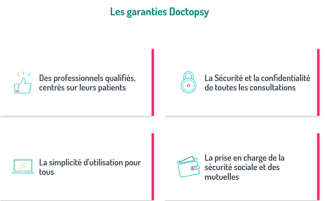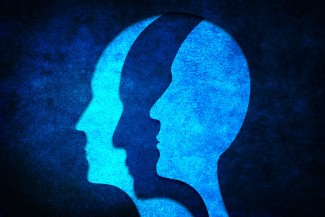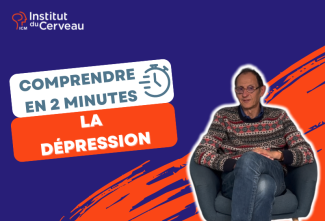Once a diagnosis of depression has been made, several treatment approaches can be implemented.
Drug treatments
Drug treatments are the first-line treatments. Most of these treatments affect the balance of the production of neurotransmitters, serotonin, noradrenaline and dopamine. Several therapeutic molecules are sometimes associated.
Recently, a new molecule, ESKETAMINE, was granted market authorization as a nasal spray for the treatment of depression in the United States.
Nevertheless, 38% of patients do not respond to drug treatments and 54% of them show no remission of depression symptoms after 12 weeks of treatment.
Transcranial Magnetic Stimulation
For these so-called “drug-resistant” patients, physical treatment is envisaged.
These therapies are based on transcranial (non-invasive) electrical or magnetic stimulation of brain regions identified as being involved in disease development.
Transcranial magnetic stimulation involves using a magnetic field in the cerebral cortex to modify the electrical activity that allows the transmission of information between neurons. This therapy has been shown to be effective in other psychiatric and neurological conditions and appears to work in depression.
Electroconvulsive therapy
Electroconvulsive therapy, which is somewhat more invasive, is very effective in the most severe patients. This is no longer a magnetic field but electrical stimulation of specific regions of the cortex.
Finally, for the most severe cases of depression, resistant to other therapies, deep brain stimulation is indicated. These stimulations are made by means of electrodes implanted in specific regions of the brain and which deliver, like a pacemaker for the heart, permanent electrical stimulation to neurons in highly targeted regions of the brain. To date only 200 patients worldwide are treated with this technique.
Behavioural Therapies
In combination with these treatments, psychotherapies, behavioural therapies and meditation are highly beneficial treatments for the prevention of major depressive episode recurrences.
For example, neurofeedback, a technique used to self-relax and modify stress levels, could contribute to the improvement of attention disorders in people with depression.
With the objective of increasing the action potential of practitioners tenfold, connected objects, mobile objects, allow remote contact with the patient and gather more information about the person and are in full expansion. The connected objects will make it possible to be as close as possible to the situation of patients’ lives and to have information in real time in order to carry out research more refined and closer to the daily reality of patients.
At Paris Brain Institute
WEFIGHT, a start-up incubated at Paris Brain Institute, is launching ViK Dépression, a virtual companion designed to support people suffering from depression and their families in their treatment.
The DOCTOPSY start-up incubated at Paris Brain Institute offers an online consultation service dedicated to psychiatry, psychology, nutrition and addictology.

The HEALTHY MIND start-up, incubated at Paris Brain Institute, offers virtual reality headsets for use by healthcare professionals to reduce the anxiety of pre- and post-operative patients. This approach could soon be extended to patients suffering from anxiety disorders.
ADSCIENTIAM, a start-up incubated at Paris Brain Institute, offers digital devices for continuous monitoring of disease progression in real life, to speed up therapeutic decision-making.



